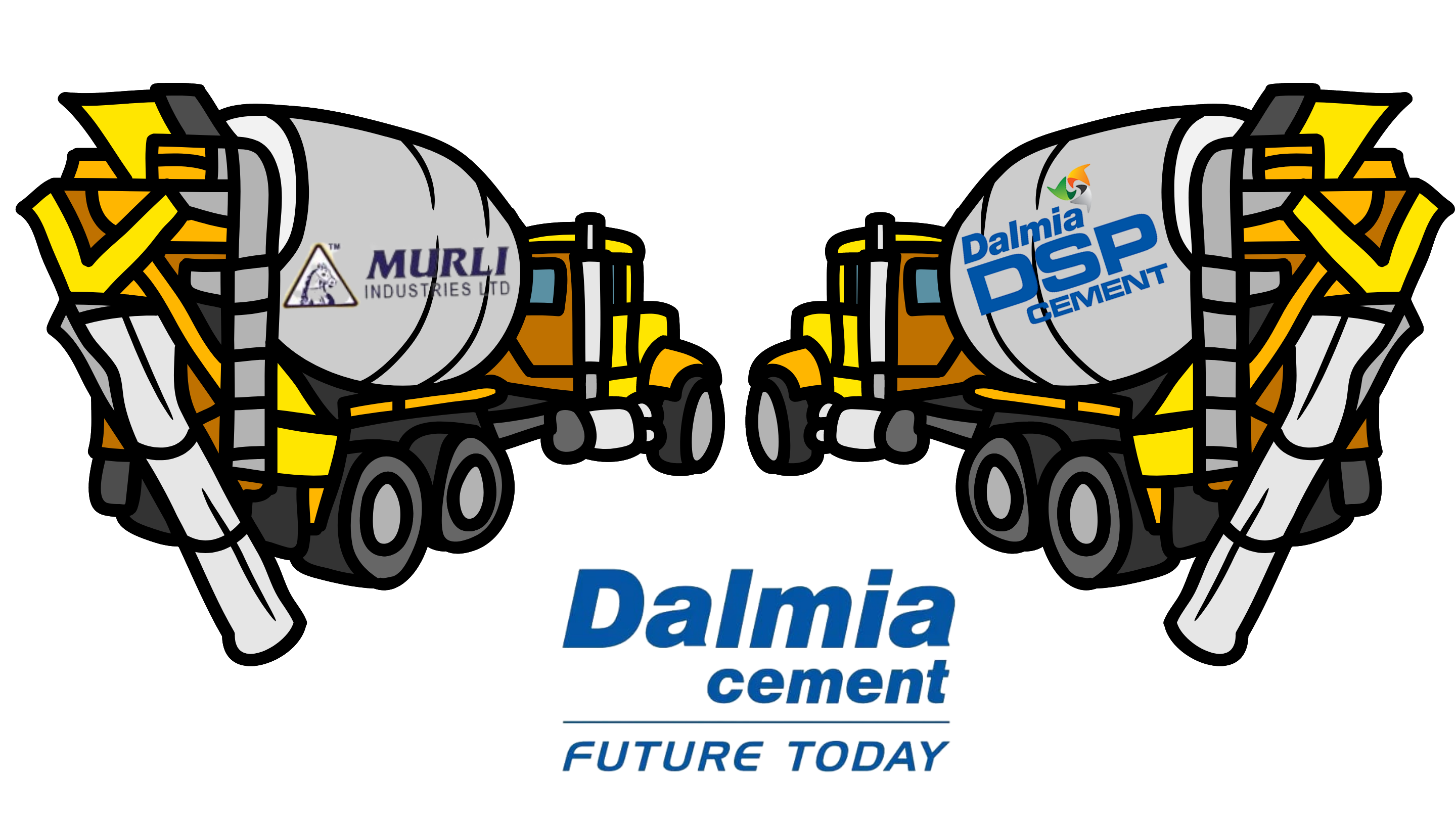Dalmia Cement (Bharat) Limited (DCBL), one of the prominent players in the cement manufacturing industry and wholly owned subsidiary (WoS) of Dalmia Bharat Limited has obtained the approval of the National Company Law Tribunal for the two separate schemes of arrangements having the same appointed date i.e. closing hours of 31st March 2020 involving Merger of Wos’s i.e., Murli Industries Limited (MIL) and Dalmia DSP Limited (Dalmia DSP) after demerging non-core businesses of MIL into other two WoS.
MIL and Dalmia DSP, both engaged in cement industry, were under Corporate Insolvency Resolution Process of Insolvency and Bankruptcy Code, 2016. DCBL acquired 100% shares of both the companies on acceptance of Resolution Plans submitted by the company.
TRANSACTION
Composite Scheme of Arrangement of Murli Industries Limited (MIL)
Through the composite scheme of arrangement, “Paper Business” of Murli Industries Limited (Demerged Company/Amalgamating Company) will be demerged into Ascension Mercantile Private Limited (Resulting Company 1) and “Solvent Extraction Business” will be demerged into Ascension Multiventures Private Limited (Resulting Company 2) and post demerger, MIL with the remaining Cement Business will be merged with the DCBL under section 230-232 of companies act 2013. Resulting Company 1 and 2 are wholly owned subsidiaries of the DBCL.
Scheme of Amalgamation of Dalmia DSP Limited (Dalmia DSP)
Through this scheme, Dalmia DSP Limited (Dalmia DSP/Transferor Company) will get merged with DCBL under section 230-232 of the Companies Act 2013.

Rationale for the Schemes
Through the Demerger, Non-core businesses (Paper Business and Solvent Extraction Business) of MIL have been segregated into separate WoS.
Consolidation of cement business would lead to synergies in operational process and logistics alignment, creating better synergy, better utilization of human resources and further development and growth of business via a single entity, DCBL.
Consideration
In the case of Demerger, both the Resulting Companies will issue 1 equity share to DCBL being the sole shareholder of the Demerged companies for every 10,000 shares as a token and to ensure compliance with the Income Tax Act, 1961.
Further, in both the schemes, for the merger part, no shares will be allotted and investment in MIL and Dalmia DSP in the books of accounts of the DCBL will be cancelled.
There will be no change in the shareholding pattern of any of the companies involved in the schemes.
Continuation of Benefits availed under Resolution Plan
Both the schemes contain a clause regarding the continuation of benefits availed under the Resolution Plan submitted for Revival of MIL and Dalmia DSP.
Protection against claims –
DCBL has been protected against any further claim against MIL and Dalmia DSP since as per the Supreme Court Judgment in case of Essar Steel, successful Resolution Applicant cannot suddenly be faced with “undecided” claims after the Resolution Plan has been accepted as this would amount to an extra amount coming up for payment after the debts have been dealt by the Resolution Applicant and the Resolution Plan has been approved.
Though protection is available for the claims related to period prior to the commencement of CIRP, legal proceedings arising post that date will be continued against the Resulting Company/Transferee Company.
Section 31A of the IBC also protects MIL and Dalmia DSP and its new management against the liability which may arise for an offence committed prior to the commencement of CIRP. It is to be noted that old management/officers in default are continue to be liable for the offence committed.
No Tax Benefits –
While approving the resolution plan of MIL NCLT denied the Tax Benefits availed to the DCBL being resolution applicant and no waiver has been provided against the contingent liabilities.
The company got delisted from the stock exchange through the resolution plan without payment of any consideration to the shareholders.
Observation by the Regional Director in Composite Scheme of Arrangement: –
Regional Director having jurisdiction over MIL, in its report, has given observation that –
- Details of pending investigations and proceedings to the public at large as given under Rule 6(3)(viii) of the Companies (Arrangements and Amalgamations) Rules, 2016 have not been provided to public at large.
- Various complaints and prosecutions are pending and an investigation is also under process against the MIL, therefore, the present scheme may not be allowed to the extent of demerger till the pendency of present pending prosecutions and investigation as the demerger may affect the ongoing proceeding of investigation.
Since the Scheme of Arrangement contains clause for continuation of the legal proceedings against the Resulting Companies and Transferee Company, NCLT accepted the representation of the Companies and has not provided any directions on the basis of the same.
Why two separate schemes?
Both the schemes are identical and in both the schemes, the Transferee company is one i.e., DCBL. Even the appointed date for both the schemes is the same. One of the reasons why DCBL filed the separate schemes since the companies involved are coming under the jurisdiction of different NCLT Benches.
Though DCBL is under the jurisdiction of NCLT Chennai Bench, Demerged Company, Resulting Company 1 and Resulting Company 2 are coming under the Jurisdiction of Mumbai Bench, Dalmia DSP is under the jurisdiction of NCLT Kolkata Bench. By filing a single scheme, execution and approval cost could not have been reduced significantly, while approval under one jurisdiction will delay execution of other scheme also.




